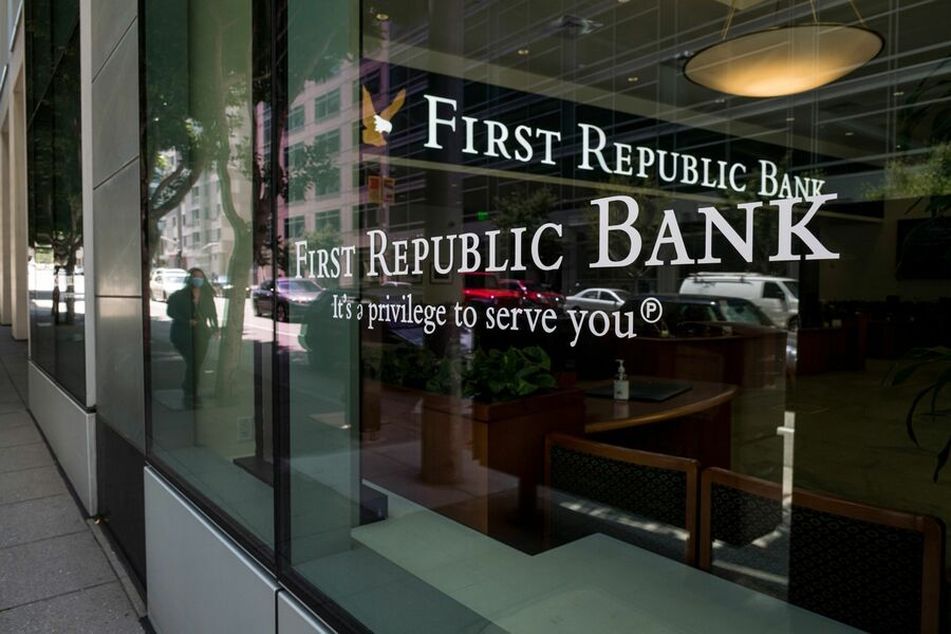First Republic plunges on report of buyers for new shares

The firm's advisors have lined up possible purchasers of new shares in the bank as part of a rescue plan.
First Republic Bank shares slumped to an all-time low Wednesday on a report that advisors have lined up potential buyers of new stock as part of a rescue plan for the beleaguered lender.
Advisors will try to persuade the big U.S. banks who have already bailed First Republic out once to purchase bonds from the San Francisco-based company at above-market rates for a total loss of a few billion dollars, less than the Federal Deposit Insurance Corp. fees associated with any First Republic failure, CNBC reported Wednesday. As part of that plan, the advisors have already lined up possible purchasers for new shares, CNBC said, citing sources it didn’t identify.
First Republic shares slid as much as 41% to a record intraday low Wednesday morning. They’ve declined 95% this year.
[More on First Republic News: Crack appears in First Republic wealth management business]
While “regulators do not act based on stock prices” a steep decline “could raise questions on the ability of a bank to raise fresh capital,” TD Cowen analyst Jaret Seiberg said in a note to clients Wednesday. “We believe there will have to be a broader restructuring of First Republic led by the biggest banks, which have deposited $30 billion in the bank.”
A representative for First Republic didn’t respond to a request for comment from Bloomberg News.
[More: First Republic grows wealth assets despite advisor departures]
Last month, First Republic staved off a potential collapse after a group of 11 bigger financial firms agreed to park a combined $30 billion in deposits with the lender. JPMorgan Chase & Co., Bank of America Corp., Citigroup Inc. and Wells Fargo & Co. each contributed $5 billion of uninsured deposits each, while other banks deposited smaller amounts as part of a plan devised along with U.S. regulators.
Any restructuring led by giant U.S. lenders “could still take days or weeks or months as the banks try to understand what value there is in the franchise and what loss they would be willing to absorb,” Seiberg wrote. “These banks have an incentive to deal as the political fallout of the FDIC making them whole on their $30 billion of deposits could be serious.”
[More: First Republic’s efforts to woo rich clients may be its undoing]
Fixed annuities will remain hot as long as investors stay on edge, says TIAA strategist
Learn more about reprints and licensing for this article.








